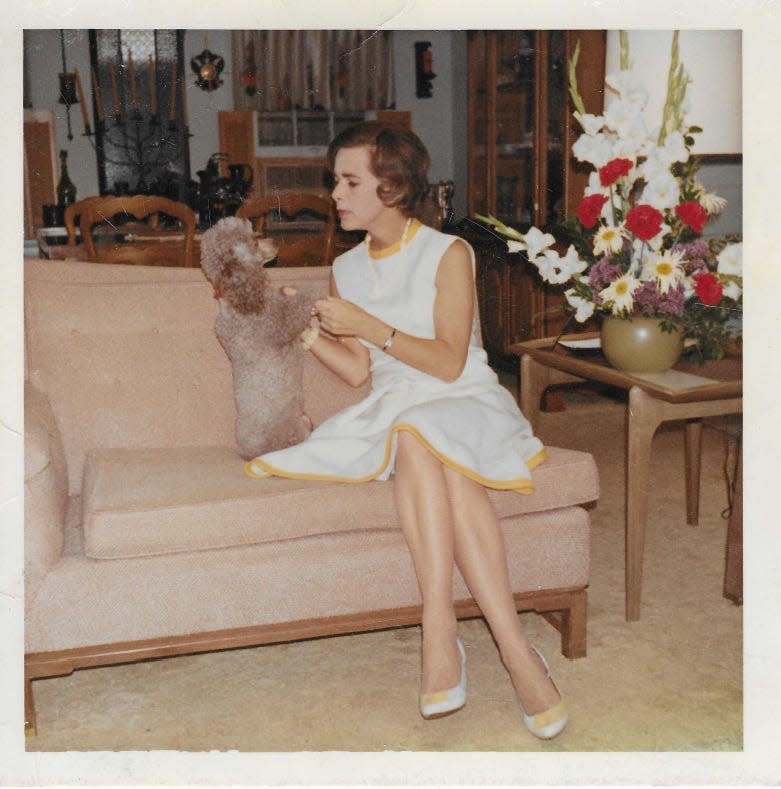Columnist Elise writes about her mother, a saint and the white dress
- Oops!Something went wrong.Please try again later.
How could she have stayed so small? After seven pregnancies and six births, she was never larger than a size 6, if even that.
The way she managed to live life as she did after all the crises in her youth (leaving her family and friends behind during the Hungarian Revolution in 1956, learning a new language and culture, taking care of three small children in the space of 4 years) is a mystery.
I think about her every day, but as her Name Day (celebrated at least as often as a birthday in Hungary) approaches, she is alive in my dreams more often.

She was named after Saint Elizabeth of Hungary who lived less than a quarter of a century in the early 1200’s. During that short time, Elizabeth proved to be intelligent, gentle and pious.
Elizabeth built a twenty-eight-bed hospital and visited the residents daily to attend to their needs. She was widowed at the age of 20, having three children to raise on her own.
Many hardships transpired, and she found final refuge on Good Friday (how fitting) with the Franciscan nuns, where she formally relinquished all of her possessions. She devoted her heart and soul to aid the sick and the poor before she died at age 24. She was canonized a Saint by Pope Gregory in 1235.

The Elizabeth I knew was born in 1929 and died in 2013. The first thing I remember the last time I saw her in 2012 was the heat. In the middle of December, the house was smoldering.
She emerged from the inner rooms tentatively, as if a decade’s long routine had been abruptly altered.
She wore a white Terry cloth robe that swallowed her. How hot she must have been in that stay-at-home armor, I thought.
She searched my face for a hint of recognition. Did my voice trigger a synapse in her brain? I ask because, when I said hi, she came to me with outstretched arms as if she had been waiting all afternoon for my arrival.
In fact, I had come only on the spur of the moment. She looked confused by the bright Christmas packages I carried, even as she pulled me close.
Crying was not an option. She would have been upended to hear me lament the sight of her locked in that broiling house, in that heavy wrap, wondering but not understanding,
I have wept anyway, at my shame of leaving her alone all that time. Who does that? Who is so selfish to bail without warning?
Now, the image of her in that massive white robe, a broken angel, holding both of my hands as we sang a traditional Hungarian Christmas carol – her voice pure, full of melody, her eyes shining like the star that led the wise men to Bethlehem – pierced through me, a bayonet of regret.

There is not enough punishment to atone for my distance or to make amends for being more worried about myself than being a good daughter to her.
The phrase “szeretlek” (“I love you” in Hungarian) rings hollow, but I say it now, with contrition and remorse.
The haiku I wrote many years ago remains my heartbeat:
Her gift from heaven
Forgiving my cowardice
Brings me to my knees
Happy Name Day to my beautiful, kind, gentle, intuitive mother.
This article originally appeared on Amarillo Globe-News: Elise commentary: The white dress

